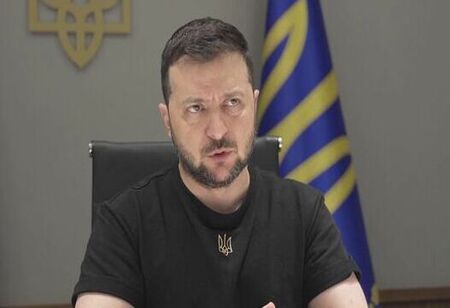
EU to Support Kyiv, Delays Decision on Frozen Russian Assets


The European Union leaders offered to fulfill the immediate financial demands of Ukraine over the coming two years but did not approve a resolution to tap into frozen Russian assets to finance a colossal loan to Kyiv over the concern of Belgium.
Belgium's stance was crucial as a Belgian financial institution, Euro clear, holds the assets that will be used to fund a loan of 140 billion euros ($163.27 billion) to bolster Ukraine in its fight against Russia's invasion.
Many EU governments hoped the leaders, meeting at a summit in Brussels, would give their blessing to the concept and ask the European Commission, the EU's executive body, to come up with a formal legal proposal in the coming weeks.
But a text backed by all the leaders - except Hungary's Russia-friendly Prime Minister Viktor Orban - was watered down from previous drafts to ask the Commission for "options for financial support based on an assessment of Ukraine's financing needs".
Earlier, Ukrainian President Volodymyr Zelenskiy, a guest at the summit, urged the EU to approve the loan proposal quickly.
The money could also be used right away to strengthen Ukraine's air defense, air fleet and frontline positions, he said, adding: "That means saving lives."
But Belgian Prime Minister Bart De Waver sounded a strong cautionary note, saying he could only support the plan if he had strong assurances that it was legal and that other EU countries would share the risks involved.
Also Read: Nissan Reshuffles India Leadership Amid Dip in Sales
"If demands are met, we can go forward. If not, I will do everything in my power at the European level, also at the national level, politically and legally to stop this decision," De Wever said at the summit.
Also Read: Europe Firms Agree Satellite Merger to Counter Starlink
De Wever called on all EU members to share the costs of any legal action pursued by Russia and contribute financially if the money ever had to be paid back. He also said Russian frozen assets held by other countries should be part of the scheme.
Also Read: Trump Alleges Modi Agreeds to Stop Russian Oil Deals
As the summit wrapped up, De Wever insisted the legality of the "reparation loan" plan was not clear and still needed to be resolved. The biggest problem is to guarantee that the money could be paid back if something goes wrong, he said.